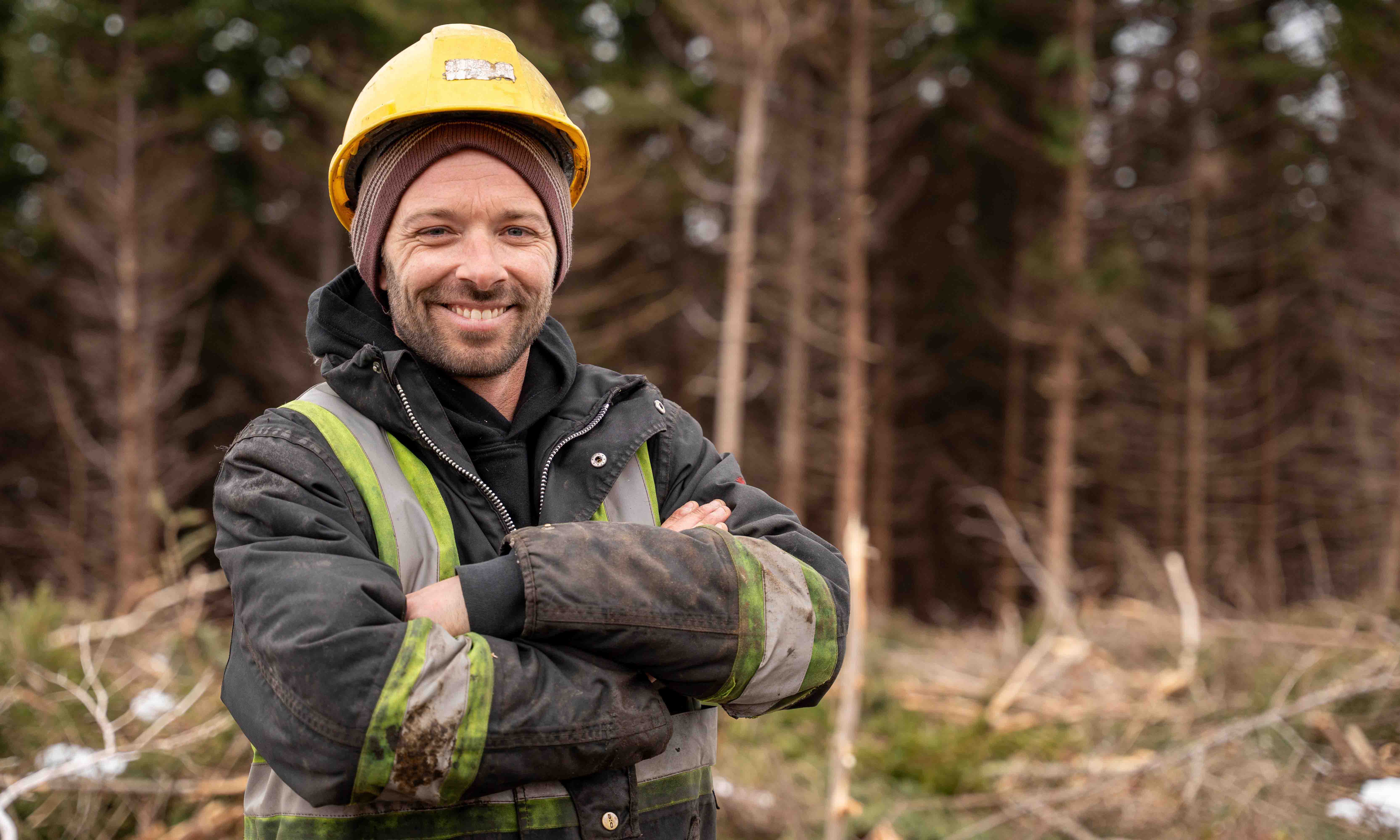NSCC funding helps strengthen family-run forest operations

Date: Mar. 26, 2025
In rural Nova Scotia, forest stewardship is a way of life passed down through generations. For the McGrath family, that legacy began with a half-ton truck, a couple of power saws and two brothers committed to building a business from the ground up. Today, L&L McGrath Brothers is a busy and growing business with modern machinery, experienced operators and strong roots in the local forest sector.
Staying competitive, however, comes with new challenges. Equipment costs have risen sharply and expectations around sustainable harvesting practices continue to evolve. Without support, investing in the tools needed to keep operations running efficiently and responsibly can be difficult.
From two saws to a fleet of machines
Luke McGrath, one of the company’s owners, recalls the early days. “My father and uncle began with an old half-ton truck and two power saws,” he says. Over the years, the business expanded. More saws and skidders were added, followed by a fleet of trucks. By the late 1990s, the company purchased its first harvester—a machine that is still in operation today with more than 80,000 working hours logged.
But new equipment is essential to meet the demands of modern forestry. Luke explains the cost pressure: “The harvester we bought in 2006 was around $398,000. The one we just purchased was over $900,000, and with new tariffs, that could jump to $1.3 million.” For many operators, making these kinds of upgrades without financial support is not feasible.
NSCC equipment funding opens the door to modernization
Through the Ecological Forest Equipment Program (EFEP), the company received funding to support the purchase of a new forwarder. The program covered 35% of the cost, reducing the financial burden by $201,250. The funding helped make the upgrade possible sooner rather than later.
“The paperwork was a bit of a process, but for $201,250 it was absolutely worth it,” Luke says. “It made the difference between upgrading now and holding off longer than we should.”
Older equipment often leads to delays. Luke explains that missed days add up quickly. “If you lose a day, you think you’ll make it up on Saturday, but nine times out of ten, something else happens. You just fall further behind.” Investing in reliable, efficient machinery means staying operational year-round, reducing unexpected breakdowns and improving productivity.
Beyond efficiency, the new forwarder also delivers major ecological benefits. Equipped with advanced telematics systems, it helps operators identify boundary lines and ecologically sensitive areas while ensuring better adherence to buffer zones. The forwarder also features an extendable boom, which allows for a longer reach, reduces the need to travel on additional trails and minimizes ground disturbance.
“When you’re carrying up to 12 tons of weight, you don’t want to be disturbing areas unnecessarily,” Luke explains. “With this equipment, we’re reducing soil compaction, rutting and damage to root systems that could harm future tree growth. It’s a win for both the business and the environment.”
Breaking barriers in the woods
More than just machinery, the EFEP is shaping and supporting the future of forestry. One of the business’ operators, Taylor, is breaking barriers. In a field where women are still underrepresented, her role stands out.
“She’s been running the forwarder for a year and a half now and hasn’t broken a single thing,” Luke says proudly. “She takes pride in her work, and it shows.”
A practical response to real industry needs
Forestry businesses like L&L McGrath Brothers carry the knowledge of generations. They also face the task of adapting to new expectations around efficiency, sustainability and workforce development. NSCC’s Ecological Forest Equipment Program (EFEP) helped ease that process by reducing financial barriers and making it possible to invest in equipment that supports both operational needs and ecological goals.
With the right support in place, this family business continues to grow and remains ready for the future of forestry in Nova Scotia.
